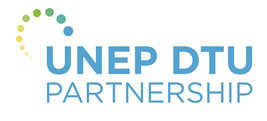The Wuppertal Institute and the UN Environment Programme (UNEP) DTU Partnership have published three working papers on the Clean Development Mechanism (CDM) Executive Board (EB)'s Sustainable Development Tool.
The papers analyse the Tool, its pros and cons, and CDM host countries' views on its suitability and practicability, and make recommendations for its improvement.
 15 September 2015: The Wuppertal Institute and the UN Environment Programme (UNEP) DTU Partnership have published three working papers on the Clean Development Mechanism (CDM) Executive Board (EB)’s Sustainable Development Tool.
15 September 2015: The Wuppertal Institute and the UN Environment Programme (UNEP) DTU Partnership have published three working papers on the Clean Development Mechanism (CDM) Executive Board (EB)’s Sustainable Development Tool.
The working papers were published under a research project implemented by the two organizations for the German Federal Environment Agency, which evaluated the Board’s Sustainable Development Tool and the sustainable development requirements of other selected market mechanisms. The aim of the research project was to analyze the Tool, its pros and cons, and CDM host countries’ views on its suitability and practicability, as well as to make recommendations for its improvement.
The first working paper, titled ‘Mapping the Indicators: An Analysis of Sustainable Development Requirements of Selected Market Mechanisms and Multilateral Institutions,’ assesses the Sustainable Development Tool against the sustainable development requirements of selected market mechanisms including CDM Gold Standard, Thailand’s Crown Standard, and the UN-REDD Programme Social and Environmental Principles and Criteria. It concludes that unlike the mechanisms assessed, the EB’s Sustainable Development Tool does not make use of the full potential an integrated approach offers: it assesses positive impacts in a structured manner, but it does not monitor or verify the claimed sustainable development benefits, nor does it assess negative impacts or possible risks.
The second working paper, titled ‘Assessing Usefulness: Do Stakeholders Regard the CDM’s SD Tool as Practical?,’ assesses the appropriateness and usability of the Sustainable Development Tool against host country needs for sustainability assessments of CDM projects and other user perspectives. It concludes, inter alia, that from a user perspective, all interviewees find it very useful and simple as a standardized, qualitative approach to sustainable development assessment. It also highlights some shortcomings, such as the lack of safeguards to mitigate risks of negative impacts.
The third working paper, titled ‘Reforming the CDM SD Tool: Recommendations for Improvement,’ makes recommendations for revising, improving and enhancing the Tool. [UNEP DTU Press Release and Working Papers]